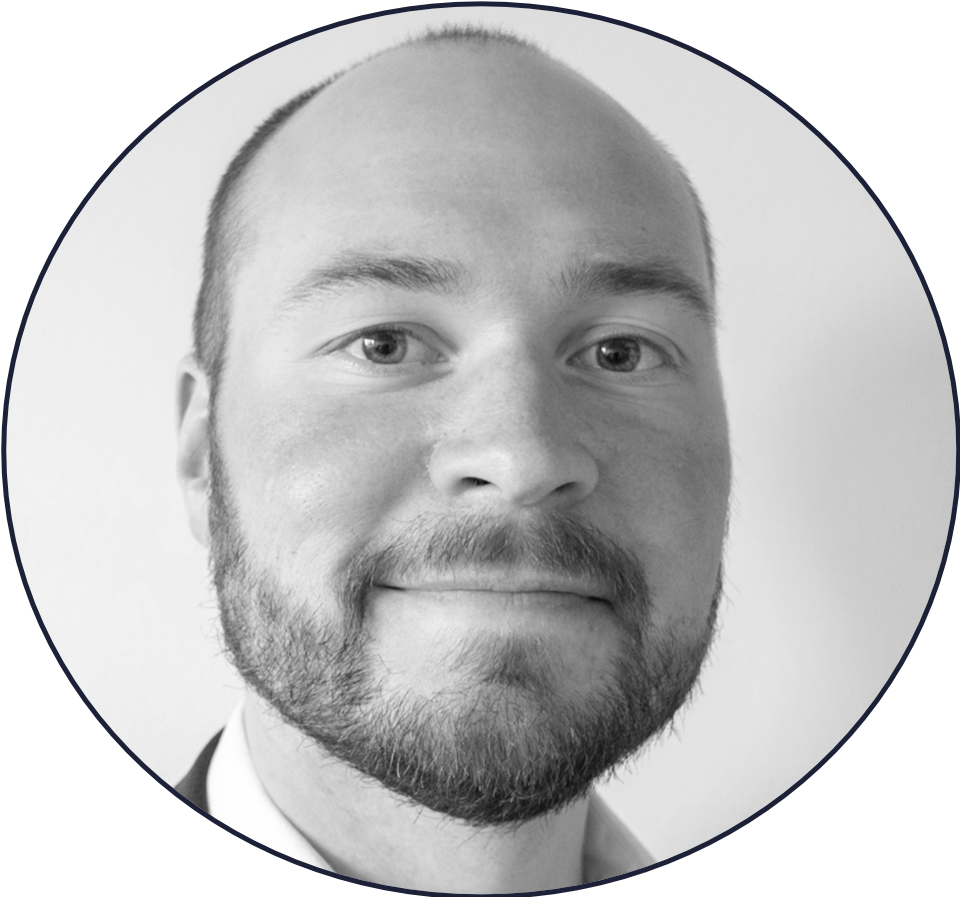Many companies go through big changes and need to make sure the entire organization moves gracefully with the changes. Often times this means hiring a People Leader to lead that change and make sure people are working towards common goals in times of transition.
Hannes Rosén, the new Chief People Officer of Speqta sat down with us to tell us how he is approaching this ever-so-important task.

Chief People Officer at Speqta
CULTURED: You just started at Speqta. Tell us what that’s like. What does your new role entail?
I joined as the Chief People Officer at an organization called Speqta. It’s been very busy over the almost three months that I’ve been there. When I joined, we weren’t Speqta; we just rebranded into a new name, which is in line with one of the things I was hired for. I’m here to unify and collect this organization; to become more united and work towards common goals.
We don’t have a management team in place just yet; most of the organizational matters are still handed by the founders organically. The founders make all the decisions. They used to have a CEO for one part of the company, but that didn’t really work out so they changed it.
CULTURED: What made the founders believe it was the right time to bring you in?
They decided to bring me in because they got new investors. They changed their strategy about two years ago, stopped doing what they were doing then, and started focusing on performance-based marketing. We’ve now rebranded it; we’re calling ourselves Speqta, and we’re focusing on it as a joint strategy for all our initiatives. The founders believed they could gain leverage by unifying these activities and working with them in a more tight-knit fashion.
CULTURED: If the founders were taking care of everything, what was HR like before you came in?
A lot of the administration has been handled by the Finance Department for a long time. However, they haven’t been strategic in terms of HR and are only working on the administrative aspects of the organization, which is mostly the baseline stuff like ensuring everyone gets paid, issuing payment slips, and basically doing the bare minimum from an HR angle.
And then the other stuff has, in essence, been shared among the teams, which is something that I actually quite like.
CULTURED: How do you encourage these “local heroes” to handle these responsibilities? How do you see to it that these proactive behaviors get incentivized and rewarded?
In general, the people who do take it upon themselves to work in these areas are those who actually enjoy doing it. They like the attention and enjoy “setting the wheels in motion,” so to speak.
Depending on who the person is, recognition works in different ways. Some people like to be mentioned publicly and enjoy an act of open recognition such as clapping and complimenting them in front of everyone. However, for other people, this could actually be a terrible experience and they would rather die than to be recognized publicly in this manner. In those cases, we obviously won’t do it. I also enjoy those spontaneous “thank yous” that people give each other; I think this organization is good at that. For example, I see people appreciate and thank those who take the time to organize breakfast, or who help out in other ways.
A good way to figure out how to recognize and reward people for their efforts, which is highly underappreciated, is simply to ask. All it takes is sitting down with the person, telling them how their efforts are important, and then asking them how they would like to be recognized. We can essentially skip any unpleasantness and reward the person in the ways that they would really enjoy. Sometimes, an act of public recognition is enough, and sometimes we reward our hard workers with some time off with family, or maybe tickets to their favorite sports games.
CULTURED: What’s your biggest challenge currently?
My biggest challenge right now is changing the structure without losing the “magic.” We’re also in a difficult situation in the sense that we’re recruiting for a new CEO, which is perfectly open and transparent to the organisation. This puts me in an awkward position: Do I act? Do I wait? How do we work with this? Do we put things in place that we might have to change moving on?
The idea, for now, is to make us into an actionable organization that runs well and does the stuff that it’s supposed to be doing. It’ll be much easier for one person to come and steer the company then because, at the moment, all the decisions are taken by the founders. In this context, my biggest fear is not understanding the magic that makes us unique. I’m afraid that I’ll make a wrong change that’ll remove that magic.
Another challenge is that we’re currently trying to implement development talks with more goals and follow-ups, which, in general, people appreciate, but there’s also likely to be a little pushback. Partly from managers who struggle with spending the time and in addition: I don’t want people to feel weighed and measured too much. I don’t want to overdo that and lose trust, but we still need to put the organization in a good place, which we can achieve by implementing more measures of control.
CULTURED: It’s fascinating how team members expect the leaders of People functions to know what to do at all times. Why do you think that is?
It comes down to a couple of different things.
One of them is that you are, in a sense, doing internal control, and that’s not always going to be popular. If you’re lucky, and you do it well, hopefully, it’ll be popular with the right people and unpopular with the right people as well; you never want to do it the other way around. One way to try to safeguard this is by making sure to optimize for high-performers. If you optimize for people that don’t deliver, such as those who’d rather work without deadlines or goals, then all your good people will want to leave.
The other side of the coin is that it’s literally your job to work with people. When people are around, they’re the material that you’ll be working with. In this sense, you’re going to be just another team member at times, and then you’ll also be an observer at other moments, or maybe a referee, so to speak. It’s definitely a tough job. Sometimes, you’ll be bonding with team members, but then you’ll have to put on your manager hat when the need strikes and set some boundaries or establish rules.
CULTURED: Tell us a little bit more about what worries you and what excites you when it comes to the field of HR and the People function.
When it comes to the People function, If you’re not measuring, you don’t know. If you don’t know, you can’t act. We know through psychology and research that people’s spontaneous perception of a lot of stuff is incorrect, and trying to spontaneously perceive everything about an organization is tremendously difficult. If you gather data on stuff, it’ll be a lot easier to get a grasp of what’s going on, and to make decisions grounded on facts.
Luckily, this data shouldn’t be a complete surprise to you; it should be related to stuff you already know or suspect. However, it should give you more depth with which to support your decisions. For this reason, I think the strongest argument in favor of the HR function is that “Knowledge is power.” You need to get good data. To build a good company culture and a strong foundation for your leadership, you need to hear everyone’s voices.
Some people are comfortable walking up to you and telling you that something you’re doing isn’t working. However, this approach isn’t for everyone, so you need to build an ecosystem of data collection. Sometimes, it might be one-on-ones, development talks, or attendance, and at other times, it might be me walking around, or attendance to company events, among other factors. All of these things measure into a big pot of data that shows how well you’re doing.
CULTURED: Do you believe in the long-term value of collecting data as the company grows?
The holy grail of this field is predictive analysis. The best thing that you could get from this industry is knowing what’s going to happen tomorrow. Everyone is trying to get Big Data and other tools in place not only because they want to understand what happened but because they need to learn what’s going to happen in advance
This is interesting for me because anyone who can tell the future is going to make successful decisions: I want to see which way we’re going. I don’t want to overcompensate by spending time on things that won’t be of any value. Maybe people are already happy with things right now, and they’ll remain happy without implementing any new measures. Maybe I don’t need to ramp up recruitment right now because the returns will be low. On the other hand, if I can predict people might be leaving, then I can start recruiting.
The other important aspect of data collection is that it gives me a quantifiable measure to show when I’m explaining things to people. For example, I can say that we’re having an issue with something and then show them the numbers to back up my claims and to justify spending money on fixing it. Saying, “I think we have this issue, maybe” is never a compelling argument for anyone to spend money.
CULTURED: Which unpopular opinions do you hold about the HR field?
I think diversity is important, but overutilized, or used incorrectly.
Diversity (and I’m not just talking about race, color, religion, etc.) is, in essence, people being different in many ways. However, what I think is important to understand is that it’s also a tool in organizational design and group psychology, which has its own pros and cons. The idea is that you push together people with different ideas and opinions, and new things will come out. However, the productivity curve of a highly-diverse team is going to flatline for a while.
Navigating how to make diverse people work together, establishing basic foundations, getting to know each other, and so on, takes a lot of time. And the more diverse the group, the longer it’ll take. Once this understanding starts to happen, you’ll get an exponential curve that skyrockets. And how high this curve can go is, to some degree, related to how diverse the team is. In other words, the diversity of your team determines your potential of creative thinking and achievement.
However, if you need to deliver a project in six weeks, which is relatively easy and definable, then you’ll need to consider the short-term loss of diversity. The military in Sweden is a good example of this: What they do is arrange their members in groups according to their hometown so that they have as much in common as possible, and require as little maneuvering and navigation to get them to work together. In these cases, if you ask these groups to do something, they’ll do it very fast. However, their creative height will be stunted since they have very limited viewpoints and diversity in the group.





